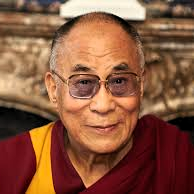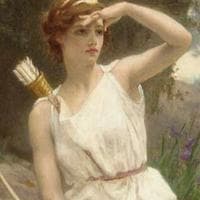Bodhidharma MBTI Personality Type
Personality
What personality type is Bodhidharma? Bodhidharma is an ISTP personality type in MBTI, 8w9 - - 154 in Enneagram, RCOAI in Big 5, EII in Socionics.
His popular picture, the grouchy Central Asian who engendered martial arts and spent years staring at a wall—assuming it preserved some resemblance with the original—, already reveals a man who feels at ease performing physical, sensory, repetitive activities and being in the present moment, but who might lack tact and diplomatic competence. Anecdotes about his life and recordings of his teachings point in the same direction, also showing a deep belief in human agency and free will, and in the necessity of taking responsibility for our decisions (one of the hallmarks of dominant Ti). From Hershock's "Chan Buddhism": ► "Emperor Wu asks Bodhidharma about the true meaning of Buddhism. Bodhidharma responds from the Mahayana perspective of the “perfection of wisdom” tradition: as the teachings of the buddhas and bodhisattvas are expressions of emptiness, how can they be caught in the web of true and false? Emperor Wu is taken aback by this response and asks, then, about the merit he has made by sponsoring the building of temples, the translation of scriptures, the ordination of monks and nuns, and the institution of social welfare projects. Bodhidharma’s answer is even more confounding: no merit at all. The emperor is deeply disturbed. One anecdote has it that he tries to get a definitive rise out of Bodhidharma by remarking that he has a nose like that of a pig. Bodhidharma is said to have replied that, as all things originally have no essential self-nature, whether a nose is piglike or not is a function of the karma being made by the perceiver, not the perceived. This reply does not sit well with the emperor. Bodhidharma is sharp enough to realize that he is not making headway with the emperor and is, instead, likely to endanger his own life and mission by continuing in this vein. He leaves the court, crosses the Yangzi River, and heads north." ► "By accepting any presently apparent injustice, one takes at least partial responsibility for how things are going, seeing oneself as an integral part of the situation and not a helpless victim of it. The present moment is never simply inflicted on us by “others”— whether divine beings, humans, or impersonal forces like chance or fate or scientific law. It is a shared dramatic field that is intrinsically open and responsive—the result of patterns of interaction rooted in our own intentions and values. Precisely because this is so, the troubles and adversity we experience are not intractable: we are always in a position to contribute to their meaningful resolution. By refusing to disown our situation, we effectively avoid being caught by or trapped in it."
Biography
Bodhidharma was a semi-legendary Buddhist monk who lived during the 5th or 6th century. He is traditionally credited as the transmitter of Buddhism to China, and regarded as its first Chinese patriarch. According to Chinese legend, he also began the physical training of the monks of Shaolin Monastery that led to the creation of Shaolin kungfu. He is known as Dámó in China and as Daruma in Japan. His name means "dharma of awakening (bodhi)" in Sanskrit.
Related Personalities

Siddhārtha Gautama / Buddha

14th Dalai Lama

Karma

Third eye Chakra : Ajna

Guanyin

Heart Chakra : Ahahata

Throat Chakra : Vishuddha

Crown Chakra : Sahaswara







